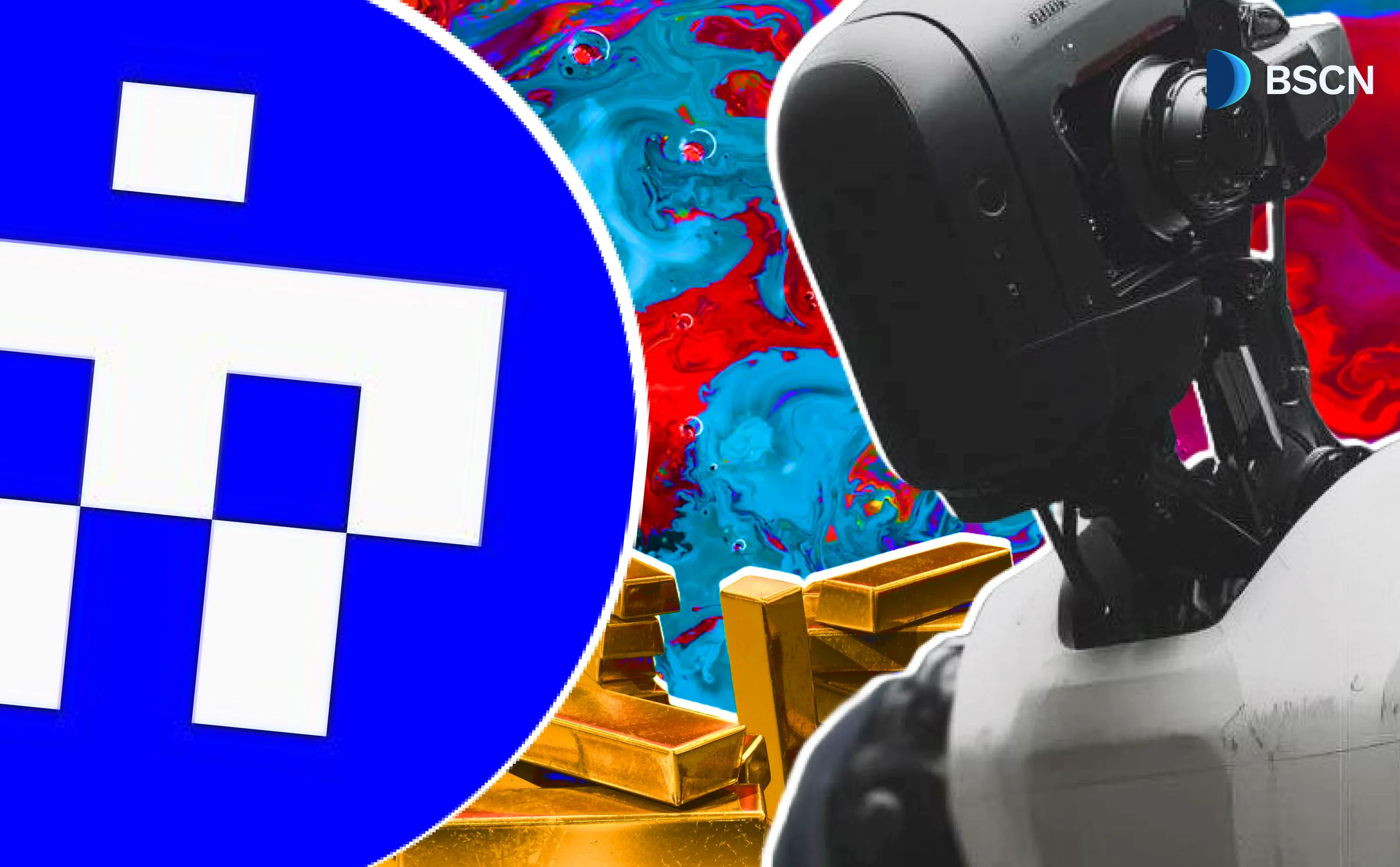WEB3
The Entire Ben Armstrong Controversy: Guns, Affairs, and Crypto

BitBoy Crypto quickly became a go-to source for crypto news worldwide, expanding into a well-established news entity. However, beneath the fame lies a web of controversies—from paid endorsements to legal battles.
BSCN
September 28, 2023
The Rise of BitBoy Ben
Born in 1982, the journey of Ben Armstrong, alias BitBoy Ben from obscurity to becoming a household name in the crypto community is a saga filled with intrigue, fame, and notoriety.
Bitboy harnessed the power of the internet, particularly YouTube, to become a cryptocurrency sensation. It wasn't until December 21, 2012, that Armstrong made his first Bitcoin investment. Unfortunately, this early foray into the crypto world ended in disappointment when he fell victim to the infamous Mt. Gox hack, losing his precious Bitcoin holdings. During this period, Armstrong viewed Bitcoin as little more than an online gambling experiment, devoid of its true potential.
However, a turning point arrived in November 2013 when Bitcoin's price experienced a meteoric rise. To his astonishment, Armstrong realized that his initial Bitcoin holdings, valued at just a few thousand dollars, had become significantly more valuable.

The Birth of BitBoy Crypto: A Journey to Empower Others
In 2018, driven by his newfound conviction, Armstrong made a profound decision to dedicate his efforts to expanding the reach of cryptocurrencies. Thus, BitBoy Crypto Youtube Channel was born with the primary mission of educating others about the world of crypto and guiding them on a path to financial success. Little did he know that this bold move would catapult him to stardom in the burgeoning world of cryptocurrencies.
As the crypto market surged, Armstrong's star rose in tandem with it. He became known for his fervent promotion of various alternative coins, or altcoins, drawing legions of followers on social media platforms, notably YouTube and Twitter.
The brand swiftly gained a reputation for delivering reliable information and insights in the crypto sphere. In time, BitBoy Crypto developed into a well-respected news source, expanding its reach and influence.
Initially, Armstrong operated the channel single-handedly. However, as the brand grew in prominence, it underwent a transformation into a full-fledged crypto news brand with TJ Shedd as co-founder. The BitBoy Crypto team grew, with more than ten in-house members. In addition to Armstrong, TJ Shedd played a significant role in shaping the brand's direction.
Armstrong's channel achieved tremendous success, affording him the opportunity to interview some of the most influential figures in the crypto realm. Conversations with luminaries like HEX founder Richard Heart, Cardano founder Charles Hoskinson, and TRON's Justin Sun further solidified his status as a respected voice in the crypto community. The Bitboy crypto Youtube reached 1.4 million subscribers in 2023.
However, beneath all the fame and acclaim lies a web of controversies, scandals, and whispers that have trailed Armstrong throughout his crypto odyssey.
The Start of Controversy: Unearthing BitBoy's Dubious Practices
Cryptocurrency Undercover: ZachXBT's Revelation
The first tremors of controversy surrounding Ben Armstrong, surfaced in 2022 when blockchain sleuth ZachXBT embarked on an undercover mission. His objective? To unveil the pricing scheme that BitBoy employed for paid endorsements on his YouTube channel.
What ZachXBT discovered stirred up controversy in the crypto community. In the course of promoting several ICOs and non-fungible tokens (NFTs), BitBoy was able to attract either no bidders or bids that were less than 1% of the value of the ICO.
Further, his findings painted a grim picture of the aftermath of these promotions. Most of the coins and tokens BitBoy endorsed in 2021 suffered substantial losses, with some plummeting by as much as 95.56%. A concerning pattern emerged, with ZachXBT noting that "Videos that were suspected of promotions or private sale deals did the worst."
The Atozy Exposé: Unmasking Scams
As the revelations mounted, another prominent YouTuber, Atozy, stepped into the fray. In a damning video exposé, Atozy laid bare a series of scams that BitBoy had allegedly endorsed and promoted. The video provided a chilling glimpse into the underbelly of BitBoy's promotional activities, further tarnishing his reputation within the crypto sphere.
Later, BitBoy filed a defamation lawsuit against Atozy, citing a staggering loss of $75,000 due to the damaging allegations. However, Armstrong later took back the legal case looking at the enormous support Atozy has.
Bitboy’s Controversial Price Predictions
A number of questions arose about BitBoy's legality as he made market-moving predictions in the crypto space. In one instance, BitBoy's video titled "Top 5 coins CRUSHING the market NOW (MASSIVE Crypto GAINS)" garnered attention. He highlighted Frontier, a cryptocurrency with a market capitalization under $100 million, as his top pick.
The absence of clear reasoning behind his choice raised eyebrows. Frontier's price immediately doubled following BitBoy's endorsement, prompting speculation about market manipulation.
Recent Scandals: The Downfall of BitBoy Ben
FTX Class Action Lawsuit
Last April, Ben Armstrong found himself entangled in a class-action lawsuit. The suit alleged that Armstrong had played a role in promoting the now-collapsed FTX exchange, adding another layer of controversy to his already troubled image.
Hit Network's Shocking Announcement
The cryptocurrency community was shocked when Hit Network, the parent company of BitBoy Crypto, severed its ties with Ben Armstrong on Aug. 28.
TJ Shedd, CEO of Hit Network, minced no words in the announcement. Citing substance abuse issues as the reason, he noted the emotional, physical, and financial toll that Armstrong's actions had taken on the Hit Network employees. According to the announcement, Ben Armstrong would no longer be associated with Hit Network/BJ Investment Holdings and all subsidiary brands, including Bitboy Crypto and Around The Blockchain.
In response to the corporate upheaval, Ben Armstrong accused TJ Shedd and Justin Williams of attempting a coup within his company. Armstrong affirmed the rumors.
In the wake of his dismissal from BitBoy Crypto, Armstrong released a video that laid bare his personal struggles and mistakes. In a moment of vulnerability, he apologized to his fans, family, and colleagues for his shortcomings, including infidelity and substance abuse.
However, five days later, Armstrong adopted a markedly different tone in another video, this time on his new YouTube channel, aptly named Ben Armstrong. He addressed his dismissal, and past mistakes and outlined his plans for the future. The shift in tone and messaging left many in the crypto community bewildered, as Armstrong appeared to embrace a more resolute and forward-looking demeanor.
Cryptocurrency and Financial Uncertainty
In a bizarre twist, Armstrong's tumultuous journey took another unexpected turn. On Sept.20, he took to Twitter to make startling claims. He alleged that HIT Network had seized all his assets, including his Lamborghini, and had even threatened his life. Armstrong's plea for financial support garnered significant attention, raising over $200,000 from a curious and concerned crypto community.
Arrest and Guns: The Dramatic Turn in the Ben Armstrong Saga
The Ben Armstrong saga took an even more dramatic twist when the cryptocurrency influencer found himself in handcuffs. On Sept. 26, Ben Armstrong was arrested by Gwinnett County police in an incident that unfolded live on his YouTube livestream.
The Live Streamed Confrontation
In a cryptic and provocative Twitter post, Armstrong announced that he would be going live from a "very special location." This location turned out to be the residence of Carlos Diaz, a crypto investor and consultant with alleged ties to HIT Network.
Armstrong made a series of sensational allegations during the livestream. He claimed that Carlos Diaz "wanted to kill him" and suggested that Diaz had connections with the mafia, a statement that escalated the already tense situation.
Police Intervention and Firearm Discovery
Concerned neighbors, disturbed by Armstrong's confrontational behavior and the alarming content of his livestream, called the police. Law enforcement officers swiftly arrived at the scene.
The livestream captured the moment when officers approached Armstrong, urging him to put down his phone. They questioned him about the presence of a firearm in his vehicle.
In a startling admission, Armstrong confirmed that there was indeed a firearm in his car, specifically stating that it was "on the back seat." The presence of a firearm in this already volatile situation added an element of urgency and concern.
Arrest and Aftermath
As the situation escalated further, Armstrong openly discussed his personal struggles. He admitted to having had an affair and made references to substance abuse issues. Ultimately, the livestream captured the moment when police decided to search Armstrong, leading to his arrest. As per reports, Armstrong was detained for eight hours before he was released on bail.
The Uncertain Future
As the controversy surrounding BitBoy continues, the question of whether Armstrong can replicate his prior success remains uncertain. The name alone does not guarantee triumph; it's the complex interplay of persona, community, and market dynamics.
Armstrong's determination to make a comeback suggests that he still sees potential in his digital presence. In the end, Ben Armstrong's story is indicative of the broader digital transformation underway. It highlights the evolving nature of fame, influence, and personal branding in a world where anyone can shape their destiny online.
Disclaimer
Disclaimer: The views expressed in this article do not necessarily represent the views of BSCN. The information provided in this article is for educational and entertainment purposes only and should not be construed as investment advice, or advice of any kind. BSCN assumes no responsibility for any investment decisions made based on the information provided in this article. If you believe that the article should be amended, please reach out to the BSCN team by emailing [email protected].
Latest News
Crypto Project & Token Reviews
Project & Token Reviews
Comprehensive reviews of crypto's most interesting projects and assets
Learn about the hottest projects & tokens







